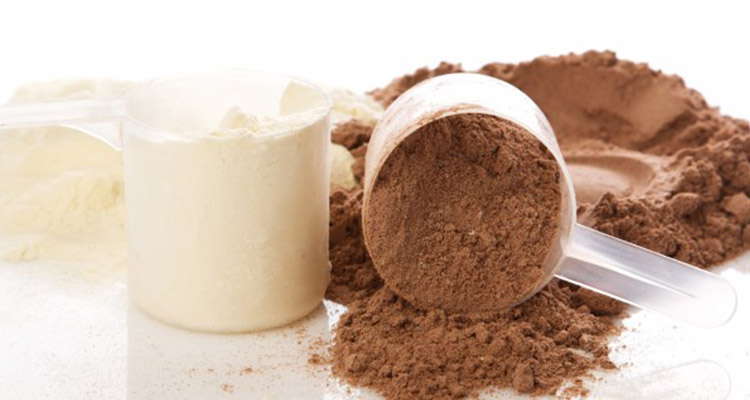Table of Contents
Chlorella is a nutrient-packed green algae that many of you may know as that green powder most commonly used to cleanse the body. It is rightfully becoming a popular supplement, as scientists have long known that it packs a wealth of beneficial active ingredients. With them go hand in hand many health benefits. How does science look at its impact on health today and is it beneficial to take?
In this article you will read about the effects of chlorella on these specific areas:
What is chlorella?
Chlorella is a freshwater green algae that has been touted for years for its nutritional composition and health benefits. It is also considered a superfood, thanks to its high concentrations of nutrients and bioactive compounds. In the last century, scientists have even promised it as a source of sustenance for people who were struggling with hunger. Today, this seaweed is mainly spoken about as a supplement for cleansing and detoxifying the body. It was first produced and consumed in Asia, particularly in Japan. Two species – Chlorella vulgaris and Chlorella pyrenoidosa – are used in food supplements. Both have comparable properties and nutrient content. [2]
Chlorella belongs to the group of so-called green superfoods, where together with it you can also find seaweed spirulina, green barley or spinach, for example.

Does chlorella have adverse effects?
Chlorella is not known to have significant side effects. However, digestive problems such as nausea, vomiting, cramps or flatulence may occur in more sensitive people. These unpleasant conditions have been observed even at recommended doses, but are not common. [14]
For whom is chlorella not suitable?
Chlorella is generally a safe supplement, but there are still groups of people who should avoid it for various reasons.
- People who take blood thinners such as warfarin. [17]
- Allergy sufferers should also be cautious as there are cases of seaweed allergy. [4]
- Pregnant and breastfeeding women should consult their doctor to be sure.
What should you remember?
Chlorella is a popular supplement packed with protein, vitamins, minerals and other bioactive substances. It is these that bestow it with numerous health benefits. Although chlorella has yet to be studied by scientists to get an idea of all its properties, we now know that it is useful for example for immunity or cholesterol levels. When combined with a quality diet and an overall healthy lifestyle, it can be a great addition to taking care of your health.
Did today’s article catch your interest? Then feel free to share it with your friends and family.
[1] AMPOFO, J. – ABBEY, Lord Microalgae: Bioactive Composition, Health Benefits, Safety and Prospects as Potential High-Value Ingredients for the Functional Food Industry. – https://www.ncbi.nlm.nih.gov/pmc/articles/PMC9222421/
[2] BITO, T. et al. Potential of Chlorella as a Dietary Supplement to Promote Human Health. – https://www.ncbi.nlm.nih.gov/pmc/articles/PMC7551956/
[3] CANELLI, G. et al. Biochemical and Nutritional Evaluation of Chlorella and Auxenochlorella Biomasses Relevant for Food Application. – https://www.frontiersin.org/articles/10.3389/fnut.2020.565996
[4] JAMES, C. et al. Edible algae allergenicity – a short report. – https://link.springer.com/article/10.1007/s10811-022-02880-2
[5] JANUSZEWSKI, J. et al. Nutritional Supplements for Skin Health-A Review of What Should Be Chosen and Why. – https://pubmed.ncbi.nlm.nih.gov/38256329/
[6] – 6 JIN, J.B. et al. Supplementation with Chlorella vulgaris, Chlorella protothecoides, and Schizochytrium sp. increases propionate-producing bacteria in in vitro human gut fermentation. In Journal of the Science of Food and Agriculture . 2020. Vol. 100, no. 7, s. 2938–2945. .
[7] KIM, S. et al. A dietary cholesterol challenge study to assess Chlorella supplementation in maintaining healthy lipid levels in adults: a double-blinded, randomized, placebo-controlled study. – https://onlinelibrary.wiley.com/doi/abs/10.1002/jsfa.10321
[8] KWAK, J.H. et al. Beneficial immunostimulatory effect of short-term Chlorella supplementation: enhancement of Natural Killer cell activity and early inflammatory response (Randomized, double-blinded, placebo-controlled trial). – https://www.ncbi.nlm.nih.gov/pmc/articles/PMC3511195/
[9] MIYAZAWA, T. et al. Ingestion of Chlorella reduced the oxidation of erythrocyte membrane lipids in senior Japanese subjects. – https://pubmed.ncbi.nlm.nih.gov/24200934/
[10] MORAIS, M.G. DE et al. Biologically Active Metabolites Synthesized by Microalgae. – https://www.ncbi.nlm.nih.gov/pmc/articles/PMC4538420/
[11] NAULT, D. Milk Thistle Research Analysis. – https://examine.com/supplements/milk-thistle/
[12] PANAHI, Y. et al. A randomized controlled trial of 6-week Chlorella vulgaris supplementation in patients with major depressive disorder. – https://www.sciencedirect.com/science/article/pii/S0965229915001016
[13] WATANABE, F. et al. Vitamin B12-Containing Plant Food Sources for Vegetarians. In Nutrients . – https://www.ncbi.nlm.nih.gov/pmc/articles/PMC4042564/
[14] A comprehensive review on chlorella-its composition, health benefits, market and regulatory scenario. – https://www.thepharmajournal.com/archives/?year=2018&vol=7&issue=7&ArticleId=2319
[15] Dietary Reference Values | DRV Finder. – https://multimedia.efsa.europa.eu/drvs/index.htm
[16] EU Register of nutrition and health claims made on foods (v.3.6). – https://ec.europa.eu/food/safety/labelling_nutrition/claims/register/public/?event=search
[17] Chlorella – PubMed. – https://pubmed.ncbi.nlm.nih.gov/30000882
[18] Research Breakdown on Chlorella – Examine. – https://examine.com/supplements/chlorella/research/#yQZy12O-sources-and-composition






Leave a Reply
You must be logged in to post a comment.